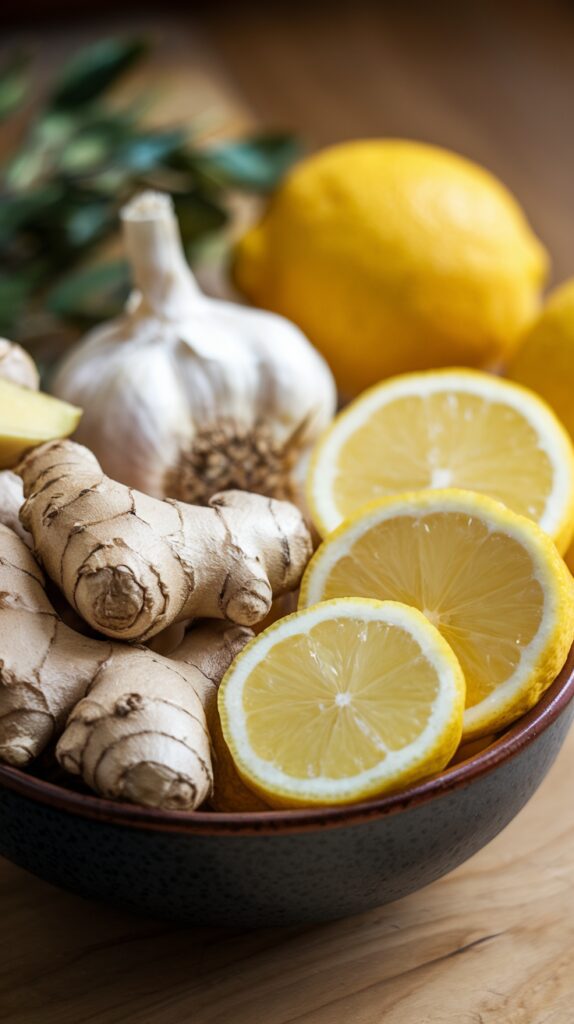
Bloating is one of the most uncomfortable digestive issues, leaving you feeling heavy, full, and sometimes even in pain. Bloated belly remedies (like the ones below) are so helpful when you need advice on this problem.
The good news?
There are simple remedies you can try to find relief. Below, we’ll talk through easy and practical ways to ease bloating and prevent it from happening in the first place.
1. Understand the Causes of Bloating
Before jumping into remedies, it’s helpful to know why bloating happens. Bloating often results from excess gas in the digestive system, caused by certain foods, overeating, or swallowing air while eating too fast. High-FODMAP foods, carbonated drinks, and even stress can play a role. For some, bloating may stem from food intolerances or underlying medical conditions like IBS (Irritable Bowel Syndrome). Knowing the triggers can help you tackle the problem more effectively.
2. Stay Hydrated
Drinking enough water is one of the easiest ways to combat bloating. Proper hydration helps your digestive system run smoothly and prevents water retention, which can make bloating worse. Aim for at least 7-8 glasses of water daily. For added benefits, sip on herbal teas like ginger or peppermint—known for their properties that help relieve gas and bloating.

Photo by Mareefe
3. Incorporate Probiotics
Probiotics are “good” bacteria that promote gut health. A balanced microbiome helps reduce bloating caused by poor digestion or an imbalance in gut bacteria. Include probiotic-rich foods like yogurt, kefir, sauerkraut, and kimchi in your diet. If you’re not a fan of these, you can try over-the-counter probiotic supplements for similar benefits.
4. Avoid Carbonated Drinks
Carbonated drinks like soda, sparkling water, and beer often cause gas to build up in your stomach, leading to bloating. Reducing your intake of bubbly beverages can minimize this issue. Instead, stick to flat water, herbal teas, or infused water with fruits like lemon and cucumber. These alternatives not only hydrate but are gentler on your stomach.
5. Limit High-FODMAP Foods
FODMAPs (fermentable oligosaccharides, disaccharides, monosaccharides, and polyols) are a group of carbs that can trigger bloating in sensitive individuals. Foods like apples, beans, garlic, and wheat are common high-FODMAP offenders. If bloating is a frequent issue, try replacing these with low-FODMAP foods like bananas, zucchini, and rice. Consult with a healthcare provider or dietitian if you’re unsure about making these changes.
6. Eat Slowly and Mindfully
Eating too fast can cause you to swallow excess air, which contributes to bloating. Practicing mindful eating—slowing down and chewing thoroughly—not only aids digestion but helps you enjoy your food. Take small bites, put your utensils down between each mouthful, and aim to be present during your meals. Mindful Eating is a game-changer for managing bloating and overall digestive health.
7. Try Herbal Remedies
Certain herbs, like peppermint, ginger, and chamomile, are well-known for their digestive soothing properties. Peppermint tea, for instance, relaxes the muscles in your GI tract. Ginger helps reduce inflammation, while chamomile calms your stomach. These herbs are easy to include in your routine through teas, capsules, or tinctures.
8. Engage in Gentle Exercise
Physical activity can help stimulate digestion and get rid of excess gas. Simple exercises like walking or yoga are particularly effective. Yoga poses like Child’s Pose, Cat-Cow, and Supine Twist are great at relieving trapped gas and easing bloating. Even a 10-minute walk after eating can make a big difference.
9. Monitor Food Intolerances
Food intolerances, such as lactose or gluten intolerance, can be a hidden cause of chronic bloating. Keeping a food diary can help you identify problem foods. Jot down what you eat, how much, and any symptoms that follow. You may want to try an elimination diet to confirm sensitivities, but always consult a professional for guidance.
10. Manage Your Stress Levels
Stress and anxiety are often overlooked as contributors to bloating. When you’re stressed, your body produces hormones that slow digestion, which can lead to gas buildup and bloating. Relaxation techniques like deep breathing, meditation, or journaling can help manage stress. Taking time for yourself, even just a few minutes a day, can have a big impact on your digestive health.
Find What Works for You
Bloating can be uncomfortable, but you don’t have to suffer through it. By understanding your triggers and incorporating some of these remedies, you can take control of your digestive health. Try experimenting with different tips to see what works best for your body. If bloating persists, don’t hesitate to reach out to a healthcare professional for personalized advice.
